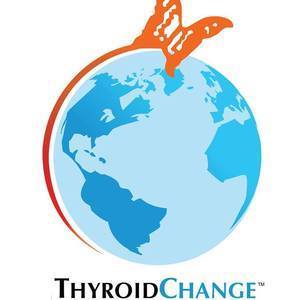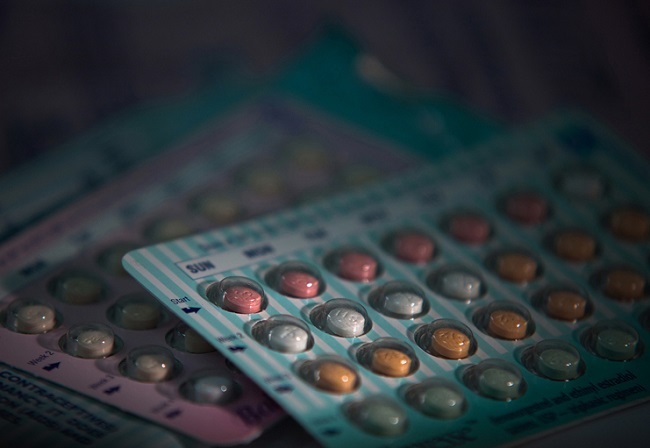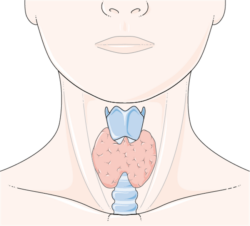Did you know that there is a controversy regarding the treatment of thyroid disease? Harvard Health estimates that more than 12 million Americans have thyroid disease, many of whom don’t even realize it. Thyroid patients insist that current treatment standards leave too many patients suffering from a lack of diagnosis or ineffective treatment. Both patient populations are left with a diminished quality of life, yet there are few doctors willing to step outside of the current guidelines. In an effort to change this situation a team of patients created ThyroidChange, a nonprofit organization dedicated to improving the treatment of thyroid disease.
What is Thyroid Dysfunction?
The thyroid is a gland in your body which is located at the base of your neck. Go ahead, touch it! Just above your collar bone and just below your “Adam’s apple.” This gland is shaped like a butterfly with two lobes which stretch around your trachea – hence its nickname the butterfly gland. This gland is key to your body’s metabolism. The hormones it secretes kick-start the energy in every cell of your body like a spark plug in your engine or flint to a match. Without appropriate amounts of thyroid hormones, whether too high or too low, the function of your body is greatly impacted. There are over 300 symptoms of insufficient thyroid hormone and they represent dysfunction in every major organ. Thyroid dysfunction is so common that you or someone you know is probably impacted or will be in the future.
Thyroid hormone is a broad term. The thyroid secretes many hormones, but the two most important for this conversation are thyroxine (T4) and triiodothyronine (T3). The pituitary gland located in your brain senses the level of hormones in that area of your brain, and sends out thyroid stimulating hormone (TSH) which excites your thyroid and causes it to release hormones. T3 is used immediately by various cells and T4 is called the storage hormone because it cannot be used by the cells. It is stored to later be converted to the useable and valuable T3. When a patient does not have sufficient levels of T3 in their blood stream, physicians expect a patient’s TSH level to increase, demonstrating the demand for more hormone by the pituitary gland. If a patient’s thyroid is producing too many hormones, the TSH lab value should decrease to tell it to “decelerate” its production.
An individual whose thyroid gland makes too much thyroid hormone is hyperthyroid. Some patients are rendered hyperthyroid due to an autoimmune disease called Graves’. One can also have cancer of the thyroid gland. Treatments for these can vary, but inevitably it leads to a lifetime of hypothyroidism.
One who has insufficient T3 available to their cells is called hypothyroid. The leading cause of insufficient thyroid hormone is the autoimmune disease, Hashimoto’s Thyroiditis. This disease causes one’s own body attacks their thyroid gland making it inefficient.
What is the Current Treatment standard? Why is it Flawed?
The flawed TSH test is used to diagnose and treat individuals. A physician will run the TSH and if the value is above a particular threshold, the physician will declare a patient hypothyroid. The physician will usually prescribe levothyroxine which is synthetic T4. The dosage will be determined by the TSH lab value. Once it hits a number determined by the physician, the patient will be determined as “euthyroid” or “good as new.”
How many disorders are you aware of that have one lab test and one prescribed treatment? Even though there is research demonstrating that the TSH lab test is flawed and that there are alternative treatments to effectively treat thyroid disease, thyroid patients have difficulty accessing these research-proven methods. We have not even begun to discuss that a majority of hypothyroidism is caused by an autoimmune disease that is seen as insignificant and is not necessarily tested for when a patient is being treated for the resulting hormone imbalance.
What is the Change Being Sought by Thyroid Patients?
One can plainly see that current treatments are solely based on T4 substitution and the ability of an individual’s body to convert the prescribed hormone to the active hormone T3. Patient experience shows that if a patient continues to complain about lingering symptoms, physicians focus on current guidelines which promote the flawed TSH lab value instead of drawing additional labs. This further testing may well demonstrate that a patient is lacking the necessary T3 to function properly, but as so few physicians are willing to perform this, many patients continue to suffer.
In a person with low Free T3, raising T4 doses will not alleviate symptoms. These patients are often prescribed drugs such as antidepressants and cholesterol-lowering drugs to mask the symptoms of insufficient T3. (If you are on one of these medications, have you had your thyroid tested? If you are on thyroid medication, have you had your Free T3 tested?). Adding medications increases side effects and does not restore balance to the patient’s hormones. Simple blood tests can demonstrate to a physician why symptoms persist after the employment of current treatment guidelines. Tests such as Free T4 and Free T3 can indicate how much Free and useable T4 and T3 are in a person’s bloodstream. These tests in combination with antibody testing can help to shed light on a patient’s persistent symptoms.
As per the current guidelines in the treatment of hypothyroidism, based on TSH testing most patients are sufficiently relieved of their symptoms by T4-only treatment. Those who are not in the majority are left to struggle for a doctor willing to listen and run extended lab tests. Complicating this further, many doctors and patients are not only unaware of additional lab work, but also of the many treatment options that one can use to treat thyroid disease.
Levothyroxine or synthetic T4 will restore health in some patients. There are also various T3-containing treatment options such as natural thyroid extract and synthetic T3 which can be used to supplement or substitute T4 treatment. Each patient is unique. We need to make sure that each patient has access to the treatment approach to best restore his or her health. ThyroidChange is about patients advocating for other patients.
Who is ThyroidChange?
ThyroidChange is a nonprofit organization advocating for the use of extended lab testing (Free T4, Free T3, TSH, Reverse T3 and thyroid antibodies) and access to various treatment options to suit the individual patient. We host a petition to appeal for such changes and this has garnered more than 16,000 signatures worldwide, demonstrating that there is indeed a genuine need for change in thyroid treatment. Our community unites patient advocacy groups in an effort to gain better care for thyroid patients and to raise awareness of this widespread problem. ThyroidChange also aims to work with medical oversight agencies in order to create a unified standard of care for thyroid patients to increase patient access to effective, modern treatment.
Please help this effort by visiting www.ThyroidChange.org to sign the petition and unite for better thyroid care, or contact ThyroidChange to discuss how you can support this initiative.










